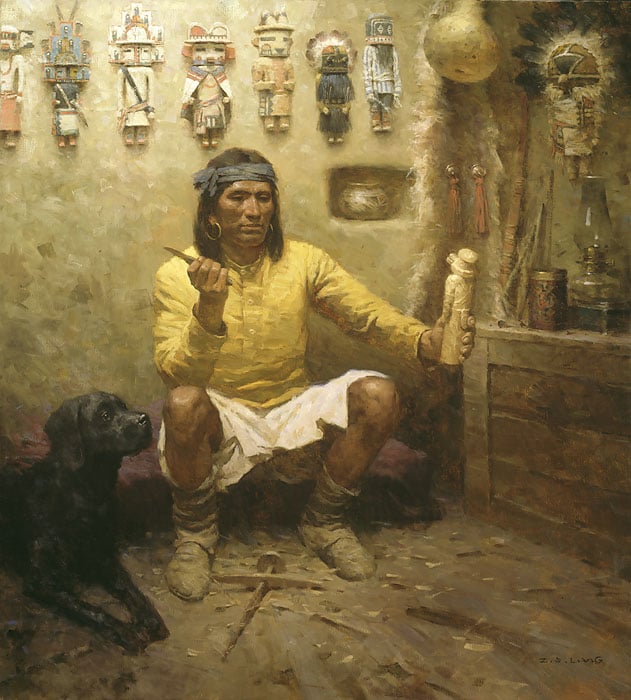Kachina Carver
The Hopi are associated by tradition and culture with the Pueblo peoples. The name “Hopi” means “peaceful ones.” Their religious beliefs are highly complex, influenced by many divinities, formed by centuries of occupying a harsh land, defending it from invasion and toiling to earn prosperity from it.
The heart of Hopi religious belief and ceremony was the Kachina cult. A Kachina was an ancestral spirit, an ancient who would intercede before the most powerful deities on behalf of the people for the assurance of fertility and prosperity. All Hopi men belonged to a Kachina cult and held to the belief that all things in life possess a dual reality, the physical form and its spiritual counterpart. During time-honored ceremonial dances, men would dress in elaborate costumes and masks that personified a specific Kachina. Made from cottonwood roots, the carved Kachina dolls represented the essential reality of these Hopi spirits. They were also used as teaching aids for educating children about the complexities of Kachina culture.
Full of marvelous color harmony, the image portrays a warm interior light that filters down upon a Hopi man intent upon his artistry as he fashions a Badger Kachina.

